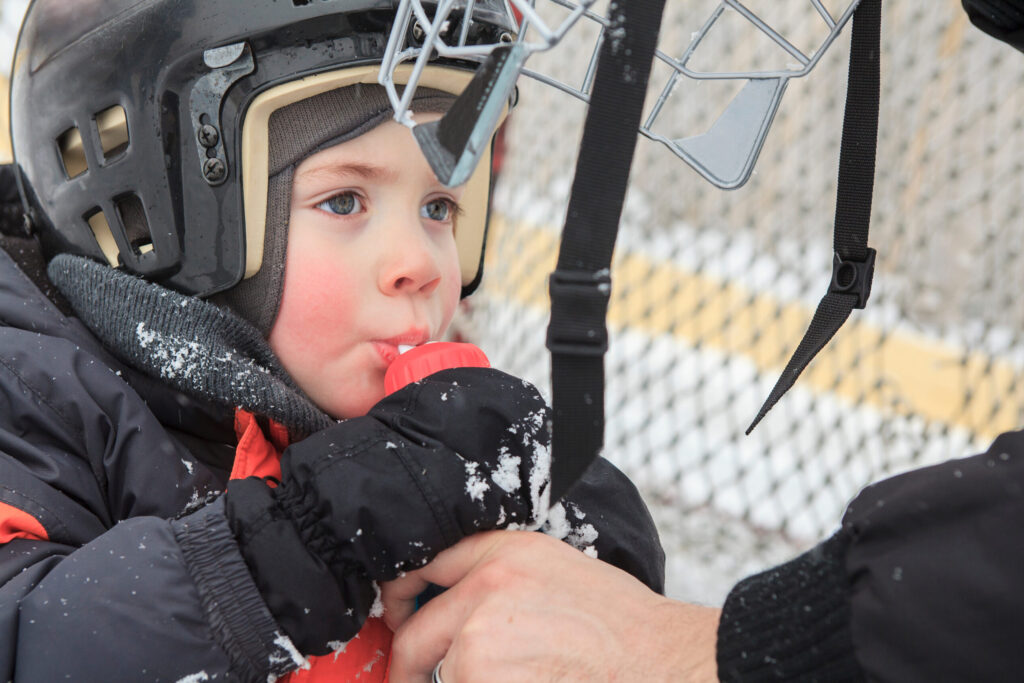Young Athletes Need to
Stay Hydrated During Winter Sports

According to a University of New Hampshire study, dehydration is a higher risk factor and is more prevalent during the cold Winter season than to the hot Summer season. Dehydration of any kind will affect body functions and reduces athletic performance.
Since cold air is less humid (air has less water saturation), it’s tougher for most people including young athletes, to notice they are thirsty at all. In fact, most often people don’t feel thirsty in the winter and therefore don’t drink the volume of water they usually drink during hot summer months. That means more people are walking around dehydrated in the Winter and don’t realize it.
The body loses a lot of water through breathing. Also the body has to work harder because of the extra clothing worn. On top of that, sweat evaporates faster during cold, dry air. Add any type of exercise or sport to this mix and you become quickly dehydrated.
The trigger response to drink water is different between hot and cold season. Thirst is triggered by regulating hormones and the brain during the Summer vs. Winter. But because people don’t feel hot in the Winter like they do in the Summer, we drink less water. Fluid balance relies on if our thirst is stimulated, so that we drink water.
If a person loses 2% of their body weight it equates to a scenario something like this—a 150 lb. kid loses 3 pounds can cause:
- lower sweat rate, and less blood flow to skin
- less cardiac output to push blood around to the body, muscles don’t receive enough oxygen
- less blood circulating, causing poor heat transfer, therefore higher body temperature
- byproducts of exercise build up in the body
- exhaustion sets in, means less/poorer performance
One of the best ways to determine dehydration is to weigh yourself pre- and post-event, for every pound lost, drink 3 cups water.
Check urine color, dark gold = dehydration. Pale lemonade or weak tea color sign of being hydrated.
Don’t wait till thirsty to drink, it means you are already dehydrated, lose your sign of thirst. Most don’t become thirsty until 2% or more of body weight is lost, by then performance has already suffered.
Young athletes need to drink 10-16 ounces of water about 15-30 minutes before practice or a game, match.
During the event, about 4-8 ounces water every 20 minutes, especially in hot environments.
